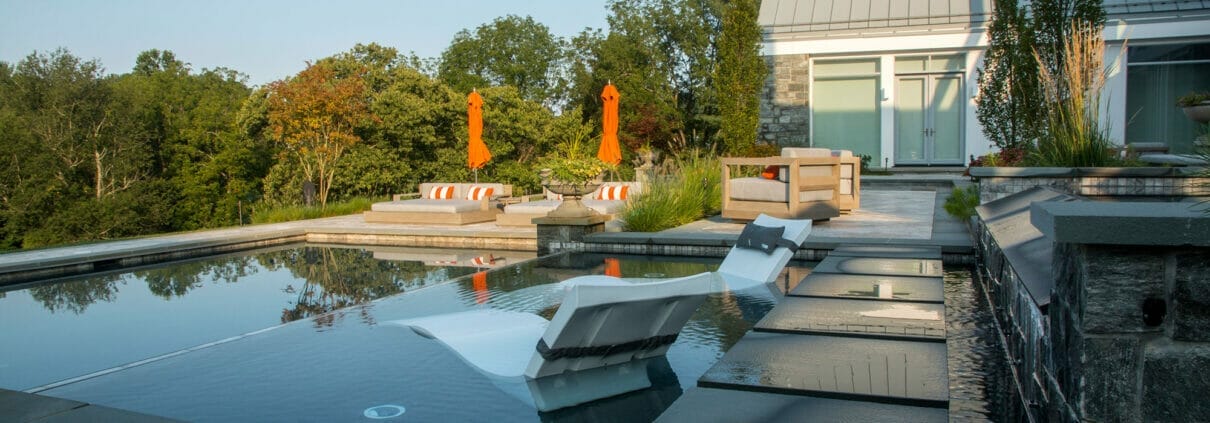Inground Pool vs. Above Ground Pool
When you’re getting a new pool for your home, your most significant choice is whether you’ll get an inground or above ground pool. Whichever you choose, the look of your yard, and your experience in the pool, will be significantly different. You’ll also see differences in cost, lifespan, maintenance needs, and much more. It’s a big decision, so how do you choose?
First, you need to understand the full differences between these two types of pools. An inground pool is just as it sounds, a pool that is installed in the ground, so it’s flush with your yard. It can be made from a wider range of materials than an above ground pool, but it also is more expensive and not suitable for all climates.
An above ground pool is installed above, so it may stand four or more feet off the ground. To make up for the height of an above-ground pool, many people install tall decks around them so that they can be level with the pool. Those in colder climates and with tighter budgets tend to prefer above ground pools. However, that’s not all you need to know to choose between these two types. Here is a comparison of the features and benefits of inground pools vs above ground pools.
Cost
Of course, the first thing you likely want to know about your new pool is how much it will end up costing. While you can get fairly inexpensive inground pools, especially if you choose basic materials and basic shapes, they do tend to cost more. The reason is simple, if you’re getting an inground pool you’ll need to have a significant portion of your yard excavated to fit it. This costs in equipment and time during the install.
Above ground pools tend to be cheaper but be careful not to opt for an above ground pool that’s too cheap. The materials in an above ground pool still matter, and if you opt for something that won’t last for too long, you may end up spending more than you want to replacing the liner, or even the shell. Still, no above ground pool is going to be expensive as the best, most unique inground pool.
Design
Thinking of getting a unique design for your pool? Or, is your backyard in a unique shape? Then an inground pool might be your best bet. You can get many more shapes, designs, and sizes in a custom inground pool than are typically available in above ground models. It is easier to incorporate water features, unique coping, and elegant decks with inground pools.
That said, you may be able to find the design you’re looking for in above ground pools. If the cost savings are worth it to you, you might try looking into what designs are available before you choose a custom inground pool.
Installation
The installation process for each type of pool is different. Inground pools take longer to install and add more disruption to your life, with more equipment. There is some preparation work that needs to be done before an above ground pool installation too, just not as much as for an inground pool.
Maintenance
While installation is a temporary concern, maintenance is a long-term issue, so you’ll probably place more importance on this issue. Typically, inground pools and above ground pools require about the same amount of maintenance, assuming that they are the same size. Although, it’s possible that an above ground pool may scratch more easily, which might mean it requires more maintenance.
ROI & Lifespan
It’s also wise to consider your pool as an investment in the value of your home. If you decide to sell your home, inground pools are generally more appreciated than above ground pools (although it may depend on your market). Inground pools also have a longer lifespan, assuming you’ve invested in the right materials and kept up with maintenance. So, you can also expect to get more longevity out of an inground pool, which may be important for you if you intend to be in your home for a long time. If longevity is a big concern for you, you can get inground pools made of the best materials to get the longest lifespan from your pool.
Energy Use
The amount of energy that your pool uses is mostly dependent on your climate. However, there are a few things to consider about your specific energy usage. Above ground pools may be easier to heat if they will be in direct sun and not covered by a deck, but only on days when the sun is out.
Need some expert advice about whether an in ground or above ground pool works best for you? Reach out to us at State of the Art Landscape.




Leave a Reply
Want to join the discussion?Feel free to contribute!